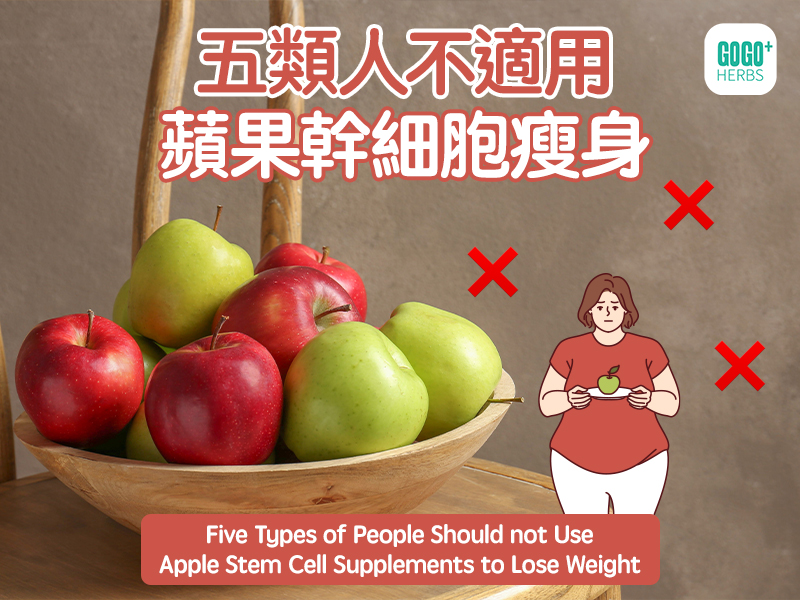Slimming supplements have always been popular products on the market. Since people want to easily maintain an ideal figure, good skin and good health, "additional supplementation" of nutrients has become a popular choice.
In the recent weight loss supplement market, "apple stem cells" have arguably been the most discussed product. To make the weight loss process easier, many supplements have been launched to aid weight loss, such as enzymes, etc.gut probioticsOr various plant fiber supplements, etc., and "apple stem cells" have recently emerged as a popular option.
These products claim their ingredients come from a precious apple tree in the Alps. Legend has it that the bark of this tree and its unharvested fruit possess the ability to self-repair after injury, which is why it was initially used in the beauty and skincare industry. Currently, most commercially available apple stem cells are in powder form, packaged individually, and claim that drinking one packet daily can achieve detoxification, liver protection, intestinal cleansing, and improvement of acne.Weight lossIt has multiple benefits.
Regarding this popular fruit stem cell supplement, the program "Heho Topic" specially invited Dr. Yi-Wen Chang, CEO of Chien Chung Cell Biomedical, to discuss its authenticity from a professional perspective—does "apple stem cells" really exist and work as advertised?
After reviewing the product ingredients, Dr. Zhang Yiwen raised a key concern: "It's virtually impossible for stem cells to be stored in bags or jars and sold at room temperature on a shelf." Based on the biological characteristics of cells, stem cells must be in a "living" state, and their preservation requires specific temperature and oxygen conditions. Sealed packaging at room temperature simply cannot meet these survival requirements. Therefore, it's highly unlikely that such products contain live stem cells. Furthermore, there are several precautions to take regarding the consumption of other ingredients in the product, and it's not suitable for everyone.
The first ingredient to be concerned about is milk thistle. Dr. Zhang Yiwen points out that products containing milk thistle have not undergone reproductive toxicity testing, therefore pregnant women, breastfeeding women, and children are not suitable for consumption, as it may adversely affect the growth and development of the fetus or child. Furthermore, people allergic to plant-based ingredients should also be cautious when consuming nutritional supplements containing herbal substances to avoid triggering allergic reactions. More importantly, milk thistle has hormone-like effects; if one already suffers from hormone-related diseases such as ovarian fibroids or uterine fibroids, consumption may worsen their condition. Additionally, milk thistle may affect the P450 enzyme system in the liver, interfering with the absorption of medications.Normal metabolismThis process increases the risk of medication use.
The second ingredient to be aware of is "aloe vera". Aloe vera produces aloin, which, after being metabolized in the human intestines, is converted into "aloe-emodin"—a component with laxative effects. For people with weak digestive systems, ingesting this component may cause persistent diarrhea, seriously affecting gastrointestinal health and overall physical condition.


